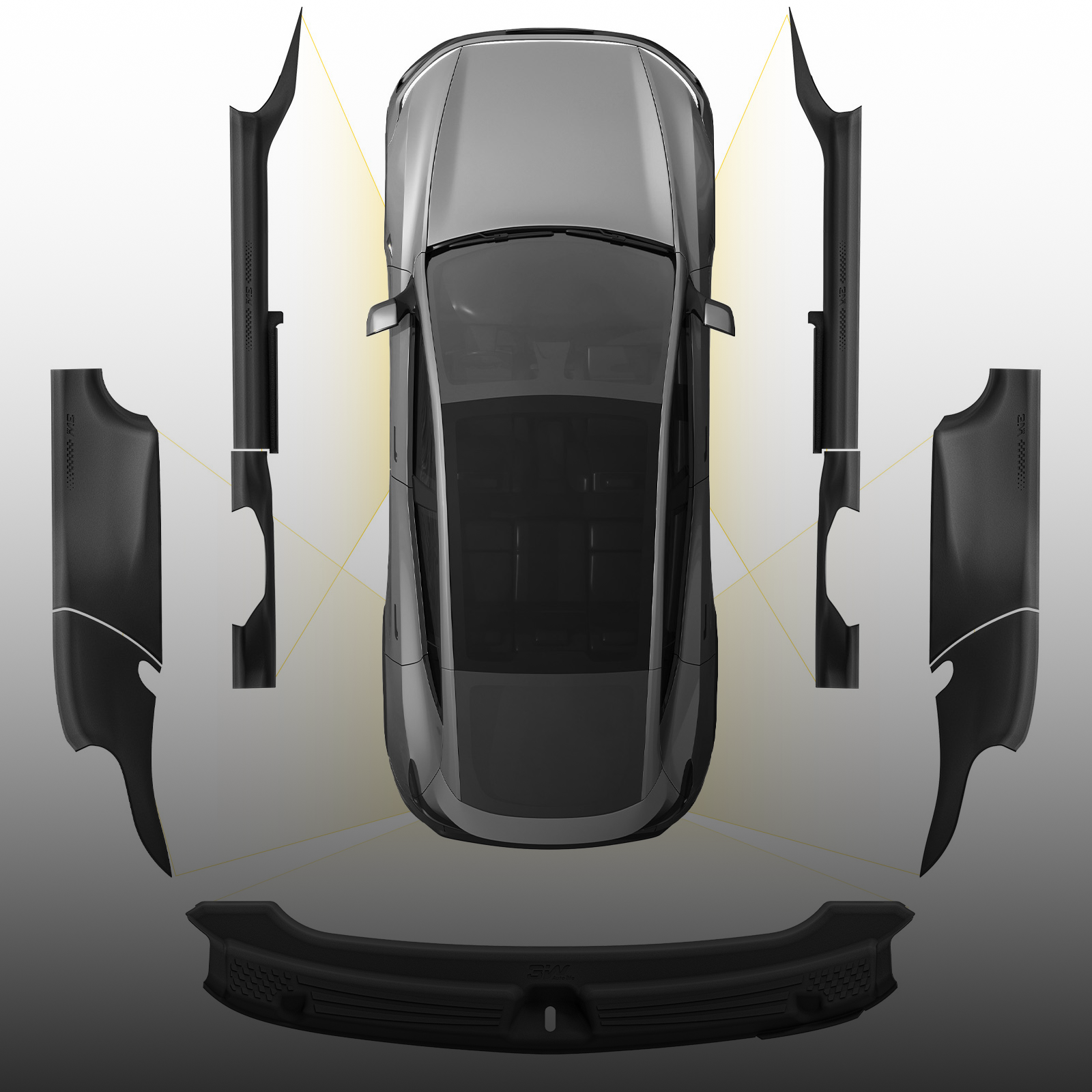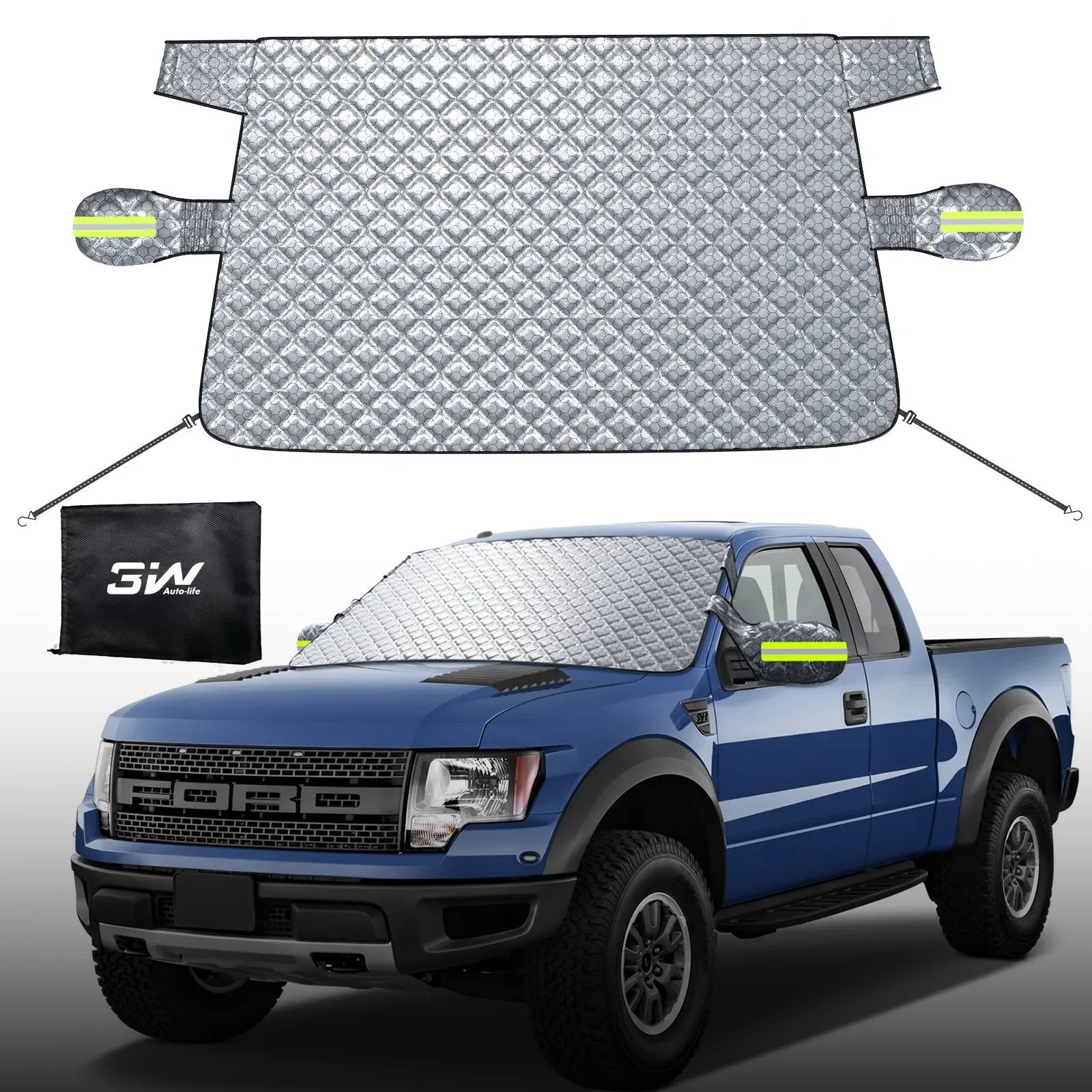

If you’ve ever looked into buying car mats, you’ve probably wondered about the difference between TPE vs PVC. Both materials are common in automotive accessories, especially floor mats, but they have big differences in performance, safety and comfort.
Choosing the right one means knowing what these materials are and how they behave inside your car. In this article, you’ll find out what makes each material unique and which one works best for your car mats.
What Is PVC?
PVC stands for polyvinyl chloride, a synthetic plastic polymer used in many industries. Is PVC a thermoplastic? Yes, it is. That means it softens when heated and hardens when cooled which makes it easy to shape during manufacturing. In the auto world, PVC is used for things like dashboard skins, trim and basic car mats.
PVC car mats are known for being budget-friendly. They are water-resistant and can last for a long time. But they tend to get hard in cold temperatures and may crack over time. They also have a strong chemical smell when new which many drivers find unpleasant.
What Is TPE Material in Car Mats?
Thermoplastic elastomer or TPE, is a rubber-like plastic that bends easily and returns to shape.
- Flexible in All Temperatures: Your mats stay soft in winter and won’t curl up or stiffen when cold.
- Odor-Free: TPE mats don’t release strong smells like PVC, making your car’s interior more pleasant.
- Safe for You and the Environment: Is TPE toxic? No, it’s non-toxic and recyclable.
- Slip-Resistant: The surface grips your shoes and the floor, keeping mats from sliding around.
- Weatherproof: They hold up in snow, rain and mud without cracking or wearing down.
- Eco-Friendly: TPE is recyclable and made with fewer harsh chemicals than PVC.
- Long-Lasting: TPE mats don’t crack or fade quickly, so you don’t need to replace them often.
- Custom Fit: TPE allows precise molding which means better coverage and cleaner looks.
Differences Between TPE and PVC
Let’s look at how these materials compare when it comes to important features for car mats. Knowing these points helps you decide which one suits your needs better.
Flexibility
TPE stays soft and bendable across temperature changes, even when it's really cold or very hot. On the other hand, PVC tends to get stiff and hard to manage in colder climates. If you live in a place with harsh winters, you’ll notice how your TPE mats stay easy to handle, while PVC mats might curl up, crack or even stop fitting your car floor properly.
Durability
PVC mats can wear out quickly, especially in areas with lots of rain, snow or dirt. They tend to crack or break after a few months of use. TPE mats are much stronger. They can take on tough conditions without falling apart. This means you won’t have to replace your mats often which saves money and time in the long run.
Environmental Safety
If you care about your health and your car’s air quality, TPE is the better option. It doesn’t release harmful gases when exposed to heat. PVC, however, may give off chemicals that are bad for your lungs and the environment. So when you go with TPE, you’re making a safer, cleaner choice for you and your passengers.
Odor Control
PVC mats usually come with a strong plastic smell. This odor can linger inside your car for weeks, especially if your car gets hot. TPE mats don’t have this problem. They are mostly odorless which means your car stays fresh from the moment you put them in. If you’re sensitive to smells, this is a big advantage.
Appearance and Fit
Some TPE mats, like 3W floor mats, have a more modern, clean look. Because they are flexible and molded to fit better, they line up nicely with your car’s floor. PVC mats are often stiff and may not cover the corners properly. Over time, they might curl or shift around, making your car’s interior look messy. TPE mats stay in place and add a premium touch.
Weight
TPE mats are lightweight, so it’s easy for you to lift, clean and reinstall them. PVC mats can feel heavy and bulky. If you remove your mats often to clean them, you’ll find that TPE saves time and effort. The lighter weight also makes them more user-friendly for everyday drivers.
TPE vs PVC: Which Is Better for Car Mats?
All-Weather Performance
TPE mats give you better performance in hot summers and freezing winters. Your mats will not become stiff or crack when temperatures drop. PVC mats often lose their shape and may become brittle or even break in cold weather which can be a problem if you drive a lot in winter.
Cleaning and Maintenance
You’ll find it easy to clean TPE mats. Just a quick rinse or wipe gets rid of dirt and spills. They dry fast and stay looking fresh. PVC mats can trap dust and mud, making them harder to clean. You might also spend more time scrubbing to get them clean.
Comfort Underfoot
When you step into your car, TPE mats feel soft under your feet. This adds to your driving comfort, especially on long rides or in daily traffic. PVC mats are more rigid which can make them less pleasant underfoot, especially if you drive barefoot or with thin shoes.
Noise and Vibration Reduction
Your TPE mats help lower road noise and cut down on vibration inside your car. They add a layer that makes the ride feel smoother and quieter. PVC mats don’t absorb sound as well and they may let more bumps and shakes reach your feet and ears.
Fit and Finish
TPE mats can be molded to fit your car’s floor perfectly. They look like they came with the car and don’t slide around. This gives your interior a neat look. PVC mats can shift or bunch up, especially if they don’t match your car’s floor shape exactly.
Why TPE Replaces PVC in Car Mats
Better Comfort
You’ll feel the difference right away when you step on TPE mats. They’re soft under your feet and make every ride more comfortable. If you drive often or take long trips, that little extra comfort really matters. PVC mats feel hard and flat which can make your ride less pleasant.
Cleaner Look
Your car’s interior looks neater with TPE mats because they fit perfectly and have smooth edges. They don’t curl or bulge, so your car floor stays clean and organized. PVC mats often don’t match your car’s shape well and can end up looking messy over time.
Less Odor
TPE mats don’t smell bad which makes your car feel fresh right away. PVC mats often come with a strong chemical odor that can linger for days or even weeks. If you don’t like strong smells, TPE is the better choice for your comfort.
Long-Term Value
You won’t need to replace your TPE mats often because they hold up well under pressure. They stay strong and don’t crack or wear down fast. This means you save money and time because your mats last longer than PVC ones.
Improved Safety
Your TPE mats grip your car’s floor better which will keep them from moving while you drive. This will help you avoid distractions and lowers the chance of slips when you enter or exit your car. PVC mats may shift around, especially when wet which can be dangerous while driving.
Eco-Friendly Choice
You’ll make a better choice for the environment with TPE. It’s a cleaner material that doesn’t release harmful chemicals and it can be recycled later. PVC mats can’t be reused easily and are less friendly for the earth.
Conclusion
The answer is clear when you look at TPE vs. PVC car floor mats. When it comes to comfort, safety, cleanliness and longevity, TPE is the clear winner. Putting TPE on the floor of your car is the best way to protect it. It is strong, safe, and built to last. TPE is better than PVC because of this.
3W Liners make high-quality TPE mats that are custom-made to fit the shape of your car. They do not slip, are waterproof, and are simple to clean. Start with 3W's custom-fit TPE car mats if you are ready to move up. The floor of your car will thank you.
FAQs
Is PVC a thermoplastic?
Yes, PVC is a thermoplastic which means it can be heated and reshaped. This helps in manufacturing, but it also means PVC can get soft or warp under heat in your car.
Is TPE toxic?
No, TPE is not toxic. It’s made without harmful chemicals and is safe for people and pets. It’s also recyclable which makes it a better choice for your car.
Is TPE better than PVC?
Yes, TPE is better than PVC for car mats. It lasts longer, stays flexible in cold weather and doesn’t smell. Plus, it’s better for the environment.
Is TPE good for car mats?
Yes, TPE is a great material for car mats. It’s tough, easy to clean and feels soft under your feet. It also looks good and lasts a long time.

